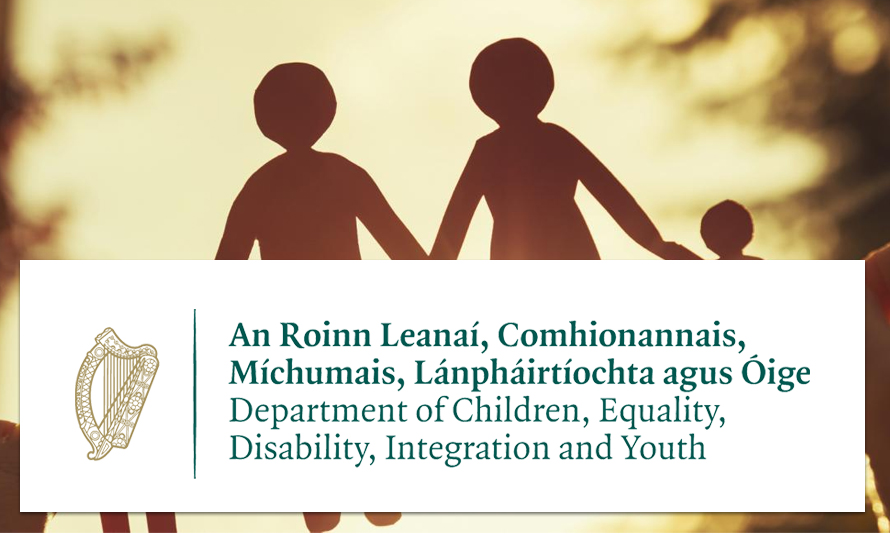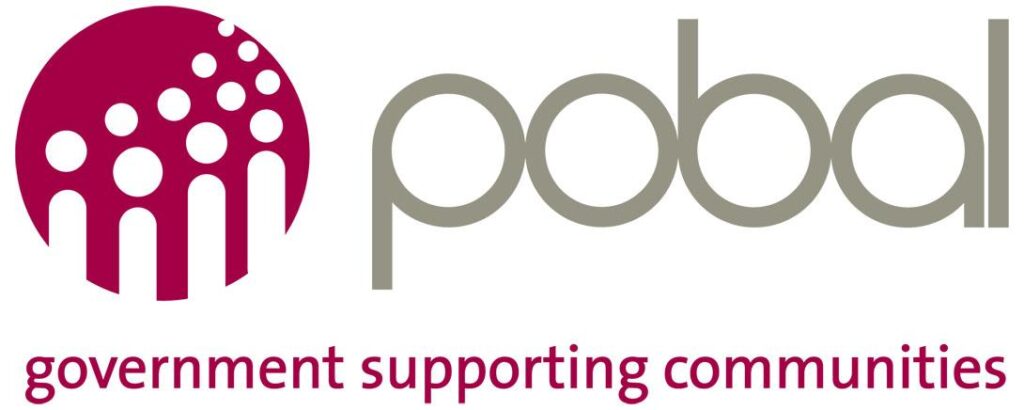From Department of Children, Equality, Disability, Integration and Youth
A major new model of government-funded supports is announced
The Minister for Children, Equality, Disability, Integration and Youth, Roderic O’Gorman has today launched Equal Start – a major new model of government-funded supports to ensure children experiencing disadvantage can access and meaningfully participate in early learning and childcare.
Equal Start will include a suite of universal supports, child-targeted supports and setting-targeted supports to ensure every child and every early learning and childcare setting will benefit from a continuum of supports that reflects a continuum of need.
Children to benefit from child-targeted supports will include children living in disadvantaged areas, Traveller children, Roma children, children availing of the National Childcare Scheme through a sponsor body, children experiencing homelessness and children in the International Protection system.
Settings to benefit from setting-targeted supports – approximately 800 in the initial implementation phase – are settings, which been objectively identified as operating in the context of the highest levels of concentrated disadvantage.
Equal Start supports will include:
- a new Family Community Liaison role for settings and the development and rollout of an associated training programme;
- funding and tailored supports for all children in Equal Start target groups;
- funding for additional staff time for all Equal Start target settings;
- funding for meals in Equal Start target settings;
- roll out of Early Talk Boost to Equal Start target settings; and
- a range of new and updated guidelines and training for all settings.
Equal Start supports will be fully rolled out in three phases over a five-year period, commencing from September with €4.5 million allocated in 2024 (equivalent to €13.5 million in a full year).
Settings to benefit from targeted supports will be notified in June. Settings must be in contract for Core Funding to be avail of the Equal Start priority designation and associated Equal Start supports.
Speaking at the launch today, Minister O’Gorman said:
“Disadvantage early in life pose multiple risks to children’s development and can have long-term impacts on their life chances. The lasting impact of early disadvantage can be seen in inter-generational cycles of poverty and social exclusion.
“We all know that high quality early learning and care and school-age childcare services have an important role to play in children’s development and in helping to break these inter-generational cycles.
“This underscores the importance of ensuring that children from all backgrounds, and most particularly children experiencing disadvantage, can access and participate in these services.
“Equal Start – our new funding model and set of universal and targeted measures has been designed with this in mind.
“From September, all children and all settings will start to benefit from Equal Start, with targeted supports for specific cohorts of children and for settings that are operating in the context of concentrated disadvantage – with up to 800 settings currently supporting more than 35,000 children expected to benefit in the initial phase of implementation.
“I look forward to seeing how this new model contributes to our wider efforts to ensure that every child has the best possible start in life, enjoys a happy childhood. and has the opportunity to reach their potential”.
Also speaking at the launch today, Tanya Ward, Chief Executive of the Children’s Rights Alliance said:
“The evidence is clear. The most important investment the country can make to break the cycle of child poverty is to start early with a DEIS type model for early years. Generations of children will have better life chances once this new Equal Start model is established.
“This Government and future governments will need to invest significantly to ensure that as many children in poverty can benefit. The Equal Start model is the potential game changer that we need.”
ENDS
Note to Editor:
Overview
Equal Start is a funding model and a set of universal and targeted measures to support access and full participation in early learning and care (ELC) and school-age childcare (SAC) for children and their families who experience disadvantage. In support of this overarching objective, Equal Start consists of a series of actions – 17 in total – to support children and families as well as educators, practitioners and settings. The goals of Equal Start are that:
• All children , in particular children experiencing disadvantage, have equitable access and participation in ELC and SAC settings.
• All ELC and SAC settings , in particular settings operating in the context of concentrated disadvantage, equitably promote the learning and care of children from disadvantaged backgrounds.
• Parents and families , in particular parents and families experiencing disadvantage, are empowered with the knowledge, tools and supports necessary for children to have equitable access and participation in ELC and SAC.
Equal Start constitutes the fourth strand of Together for Better, the funding model for early learning and care and school-age childcare and complements the Early Childhood Care and Education programme, the Access and Inclusion Model (AIM), the National Childcare Scheme (NCS), and Core Funding as well as other key policies that also support disadvantaged children within early learning and care and school-age childcare.
Equal Start has been developed on foot of extensive consultation with parents, educators and practitioners, providers and representative groups, is informed by national and international evidence and experience, including the DEIS model in schools.
Strands of the Equal Start
Universal measures (Strand 1) – Every child and every setting
Strand 1 of Equal start will provide universal measures – measures that are available in all settings and that will support positive experiences and outcomes for all children. Through their universal reach, these measures will support children from disadvantaged backgrounds in whatever ELC or SAC setting they attend. In addition, some of the measures here will prioritise Equal Start targeted settings and target groups in their initial roll-out but with the aim ultimately of universal roll-out to all ELC and SAC settings. Measures under Strand 1 fall into three areas:
A. Empowering parents – communications initiatives to support parents (in particular parents from disadvantaged communities) to know about what services are available to them (both ELC and SAC settings and parenting supports), how to access them, and what financial supports can help them.
B. Embedding inclusion in settings – supporting ELC and SAC settings to be more inclusive through reviewing and extending Equality, Diversity and Inclusion and Leadership for Inclusion in Early Years (LINC) training, reviewing support for the Inclusion Coordinator role, strengthening admissions policies, and supporting settings’ engagement in inter-agency cooperation for child welfare and protection.
C. Supporting partnership between settings, families and communities – developing a new role in ELC and SAC settings of Family and Community Partnership Coordinator, introducing training to support the new role, extending the Better Start advisory role to support Equal Start and supporting parents’ involvement in settings.
Child-targeted measures (Strand 2) – Every child with a priority designation
Strand 2 of Equal Start will provide child-targeted measures – measures that are available in all settings and that will focus additional supports on children from disadvantaged backgrounds and priority groups, including:
- children living in a small area assigned as deprived under the Pobal HP Deprivation Index,
- children from a Traveller or Roma ethnic background,
- children availing of the National Childcare Scheme through a sponsor referral,
- children living in homeless accommodation, and
- children living in an International Protection Accommodation Centre or Emergency Orientation and Reception Centre.
Measures under Strand 2 fall into two areas:
D. Meeting practical needs – additional, semi-flexible funding to support access and participation of children from priority groups, in all settings.
E. Developing tailored responses – working with representative organisations of target groups to co-create effective solutions to address barriers to access and participation in ELC and SAC for children from those target groups.
Setting-targeted measures (Strand 3) – Every setting with a priority designation
Strand 3 of the Equal Start will provide setting-targeted measures – measures that specifically target settings that have been identified through the Equal Start identification model as settings with high concentrations of children from disadvantaged backgrounds. Strand 3 will provide:
F. Additional funding for settings in areas of concentrated disadvantage – flexible funding for additional staff time to assist settings in supporting children in the most disadvantaged communities, as well as funding for additional meals in targeted settings to help address food poverty and the provision of targeted interventions for children experiencing language delay. The Equal Start identification model will also be used in other areas of ELC and SAC policy to support the further development of the progressive universal approach to policy set out in First 5.
Identification Model
Children and settings to benefit from targeted supports have been identified through the Equal Start identification model, which uses administrative data from the National Childcare Scheme and the ECCE programme (e.g. children’s Eircode and ethnicity, as well as sponsor referrals) combined with Pobal’s HP Deprivation Index and geocoded lists of homeless accommodation providers, International Protection Accommodation Centres and Emergency Orientation and Reception Centres. No application process will be required for targeted supports.
Equal Start 2024/25:
The allocation announced in Budget 2024 of €4.5 million to commence initial roll out of the Equal Start from September 2024 (equivalent to full year cots of €13.5 million) combined with existing resources within the Department and other Equal Start Partners (such as Better Start, Pobal and Tusla), will support foundational groundwork to progress the following Equal Start actions in 2024, with full implementation of all other actions within the lifetime of First 5 – by 2028.
- Roll-out of funding for additional staff time in Equal Start targeted settings, which can fund a range of measures such as increased contact and non-contact time as well as engagement in training.
- Appointment of six Family Link Workers to support the full roll out of the Traveller Parenting Support Programme to all 17 Tusla areas, with new responsibilities on Family Link Workers to engage with Traveller parents of children aged 1-5 years, supporting them to attend and participate in early learning and childcare, avail of the ECCE programme and where applicable applying for the NCS.
- Appointment of a Traveller and Roma Advisory Specialists to work in Better Start
- Review and updating of the Equality, Diversity and Inclusion Guidelines and associated training.
- Review of the current Inclusion Co-ordinator role and updating of Leadership for Inclusion Programme.
- Development of a new Family Community Liaison role and development and rollout of associated training programme.
- Roll-out of Early Talk Boost to Equal Start target settings.
- Roll-out of Meitheal training and engagement by early years educators and school-age childcare practitioners in Meitheal.
- Development and roll out of Communications and Engagement Plan.
- Development of a new strand of funding under the existing Case Management Process for critical incidents.
- Roll-out Equal Start literacy and numeracy initiatives under the new National Literacy, Numeracy and Digital Literacy Strategy, 2024-2033: Every Learner from Birth to Young Adulthood.




